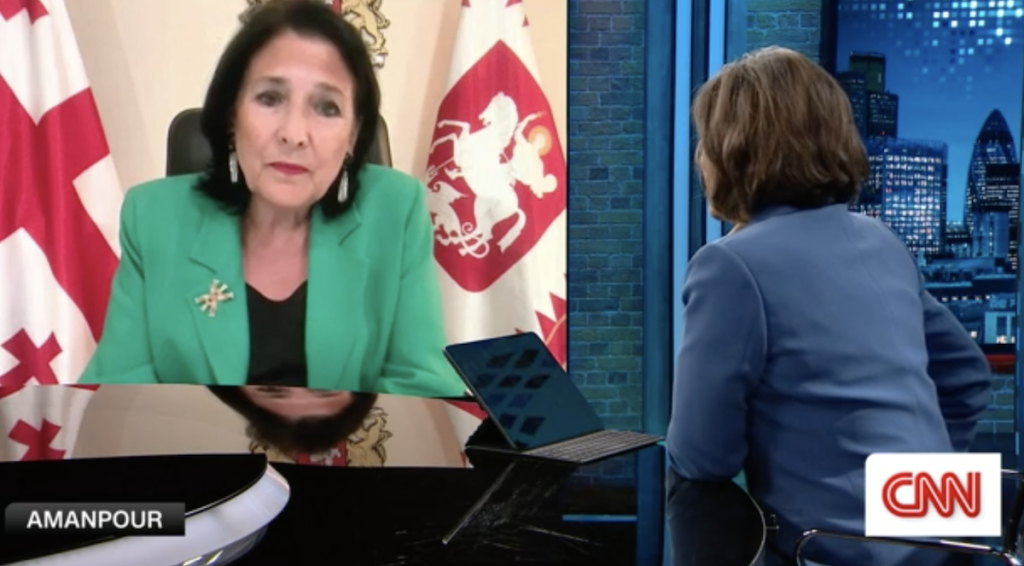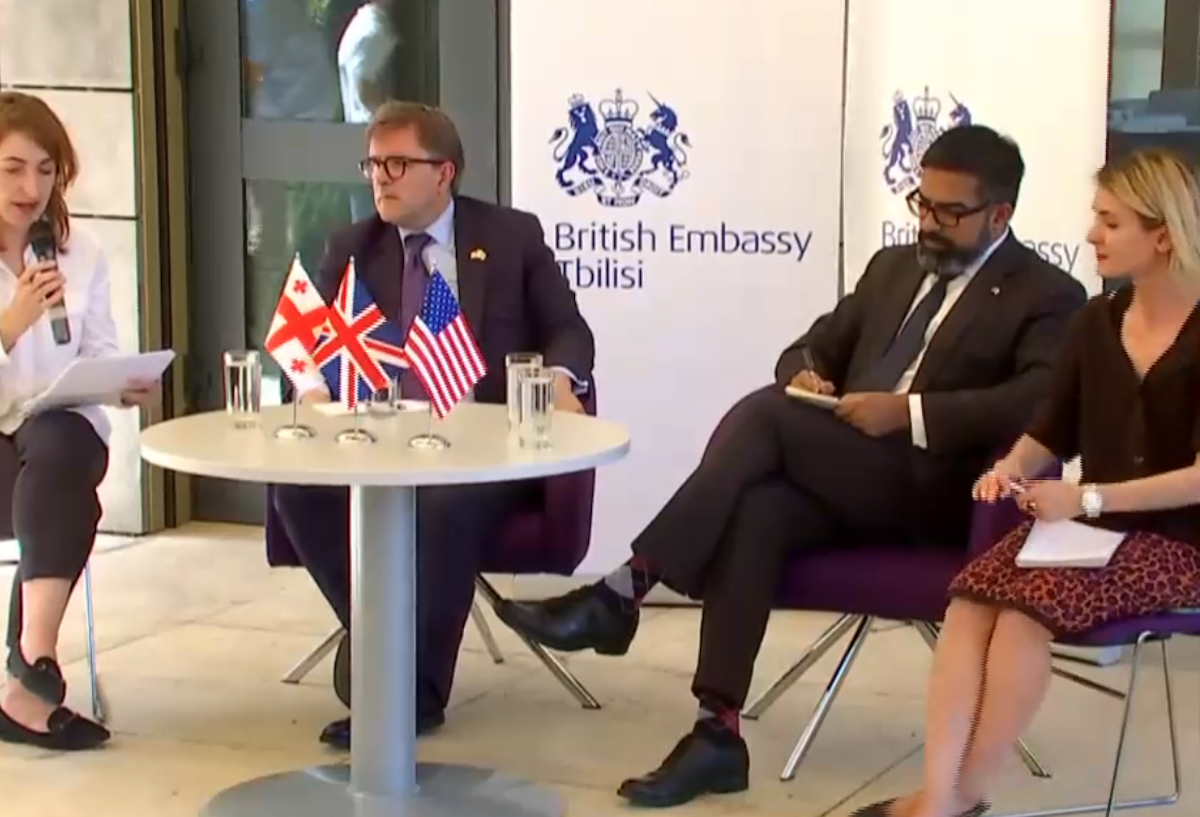"Number of Russians in our country needs to be controlled" - President of Georgia
Zurabishvili on Russians in Georgia
Georgia’s President Salome Zurabishvili, in an interview with CNN’s Christiane Amanpour, expressed her concerns about the uncontrolled entry of Russian citizens into the country, as she believes Russia could exploit them to spread its “soft power” and potentially invade Georgia in the future under the pretext of protecting the Russian-speaking population.
Zurabishvili also stated that Georgia is engaged in a “soft war” with Russia and hopes for the support of the European Union in this.
Here are the key points from Zurabishvili’s interview:
●According to the President, given Putin’s inability to manage the war in Ukraine, she does not see any immediate military threat to Georgia, but highlights the significant danger posed by the spread of Russia’s “soft power” and propaganda:
“In our case, at this stage, I don’t see any military tension. First of all, we have military occupation that has been ongoing since 2008 and continues to this day, in various forms since 1991. Two regions are occupied by Russian military bases. What I think can happen is that Russia is testing a second front today through ‘soft power,’ through propaganda.”
Zurabishvili’s concerns about the uncontrolled entry of Russian citizens into Georgia likely stem from the potential influence they may have in supporting Russia’s objectives, particularly regarding the Russian-speaking population in Georgia. The President’s appeal for EU support reflects Georgia’s desire to strengthen its alliances and ensure its security amid ongoing geopolitical challenges in the region.
Georgia, as a nation located in a sensitive geopolitical position, continues to grapple with the consequences of the 2008 Russo-Georgian War and the unresolved conflicts in Abkhazia and South Ossetia. Zurabishvili’s remarks shed light on the country’s ongoing efforts to navigate and address the multifaceted challenges posed by its relationship with Russia.
● Zurabishvili also stated that in the future, the Russian-speaking population in Georgia could become a reason for Russia’s invasion:
“All those Russians who have come to Georgia, I will reiterate, need to be monitored. We cannot allow such a number of Russians into Georgian territory without knowing who they are. The majority of people fleeing Russia today are not actually supporters of Putin. However, we are aware of the threats utilized by Russia, that if the Russian-speaking population is not adequately protected, it could become a cause for Russia’s invasion.”

● The president also stated that Georgia has a significant chance of becoming part of the European Union, and the EU must assist Georgia in this endeavor; otherwise, the West will lose Georgia, which will remain a “toy” in the hands of Russia:
“At a decisive moment, the European Union needs to grant Georgia candidate status by the end of the year. They gave us the [European] perspective, which was very important for Georgia because it meant that geography is no longer an obstacle for Georgia as it has been for many years. The next stage is obtaining candidate status. And in this ‘soft war’ with Russia, I believe the European Union cannot afford to lose Georgia, disappoint the Georgian people once again, and provide Russia an easy playing field.”
●Zurabishvili acknowledges that Georgia has faced challenges in implementing democratic reforms recently. However, despite this, the European Union should not turn away from Georgia because it is a strategically important decision:
“It is a very important strategic decision that, of course, takes into account the democratic reforms and the process that has been less satisfactory recently. However, these conditions can persist, and more can be added. There are many opportunities through which the European Union can choose the right words and format, but again, this is the correct strategic decision.”
●The president declared that NATO membership remains a strategic goal for the country, although, according to her, it is a more distant prospect than achieving candidate status in the European Union:
“As for NATO, the central topic at the next summit will be Ukraine, we all know that, and there will be security guarantees for Ukraine, I don’t know what kind, but it’s normal. This is what Ukraine deserves today, and there is no competition in any form. Any progress by Ukraine will truly benefit Georgia.”
Zurabishvili’s statements emphasize Georgia’s aspirations to integrate into the European Union and NATO, underscoring the strategic importance of these alliances for the country’s security, stability, and democratic development. The president highlights the significance of receiving candidate status from the EU and expresses hope for ongoing support from the international community in addressing the challenges posed by Russia.



















